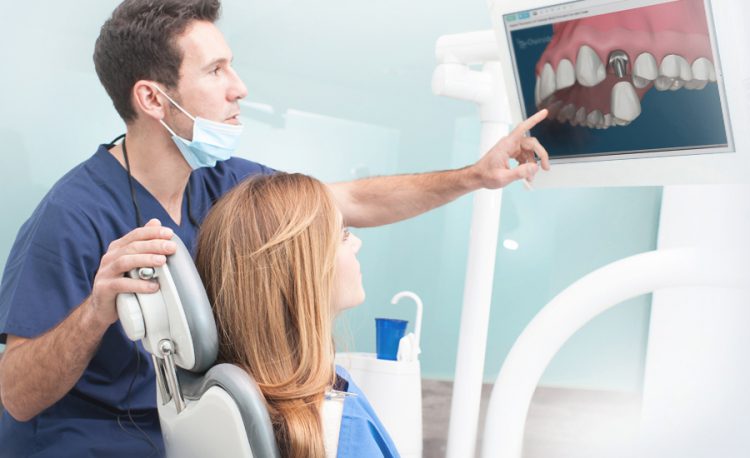Special Care and Periodic examination
Everyone, including young children, should visit the dentist at least once every six months. Permanent teeth are designed to last a lifetime. The risk of tooth decay, gum disease and tooth loss can be reduced with good oral hygiene, a low sugar diet, use of a mouth guard when playing sport, and regular visits to the dentist. Modern techniques mean that dental treatment can be carried out with no or minimal discomfort.
Dentistry is advancing quickly and implants are more routinely placed for many clients, who prefer not to lose a tooth or want to fill a space where a tooth is lost. The maintenance of implants is paramount to their success and longevity; therefore regular visits to your dentist and hygienist are important. Your dentist/hygienist can also give advice regarding the cleaning and maintenance of removable appliances, such as dentures or oro-facial prostheses. It is important that you still have regular examinations with your dentist even if you have no natural teeth, as the dentist needs to look for changes in your gums and the underlying bone.
- It is normally recommended that you visit your dentist twice a year, although people who have severe gum disease or a weakened immune system may need to visit the dentist more often.
- To help you achieve healthy teeth and gums, you and your children should: Eat a good diet and avoid frequent sugary snacks. Sweet sticky foods, like lollies, are especially bad for teeth because they stick to the teeth and promote decay.
- A dentist or hygienist can remove the plaque build-up and tartar, check for cavities and ensure that your whole mouth is healthy.
- Your dentist not only examines your teeth for signs of decay or damage, he also looks for early signs of gum disease and oral cancer.
- Also a regular checkup is must for patients’ undergone root canal or with Crowns and Bridges to detect the problem associated with underlying teeth.

